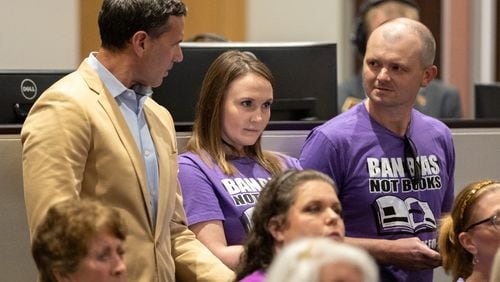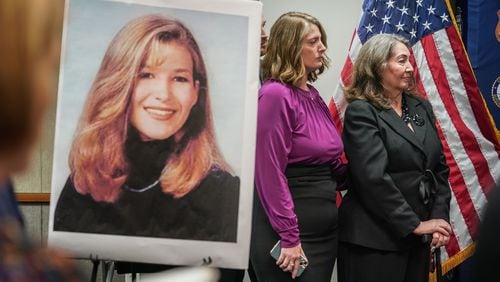A Cobb County teacher who was fired for reading a book that challenges gender norms to fifth graders is appealing the Georgia Board of Education’s decision to uphold her termination.
Katie Rinderle filed an appeal last week asking the Cobb County Superior Court to reverse her termination and to expunge her employment and disciplinary records.
She was removed from her Due West Elementary classroom in March 2023 after reading students a book called “My Shadow is Purple” by Scott Stuart. Some parents complained to the school’s principal that they were not informed about the content of the book ahead of time. Rinderle maintained throughout a two-day hearing and afterward that the book was about inclusivity. She was fired in August, and filed an appeal the next month.
Rinderle, another Cobb teacher and the Georgia Association of Educators filed a lawsuit in February accusing the state’s second-largest school district of discrimination. The complaint stated that the teachers fear discipline under Cobb’s policies for “actively and openly supporting their LGBTQ students.”
Rinderle is believed to be the first public school teacher in Georgia to face consequences under state laws passed in 2022 that limit what teachers are allowed to discuss in the classroom. The discrimination lawsuit is the first federal challenge to the Georgia policies, her attorneys said in a news release from the Southern Poverty Law Center last month.
In the most recent appeal, Rinderle and her attorneys maintain what they’ve said since she was fired: The district’s decision to fire her was “arbitrary, capricious, an error of law, lacking sufficient evidence and a gross abuse of discretion.”
The Georgia Board of Education unanimously affirmed the firing in February. In its 21-page review, it found that Cobb’s policies are not “unconstitutionally vague,” as Rinderle and her attorneys alleged, and that her firing was not a “predetermined outcome.”
About the Author







